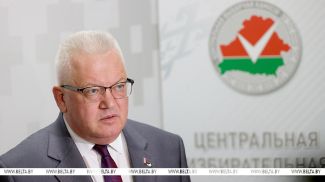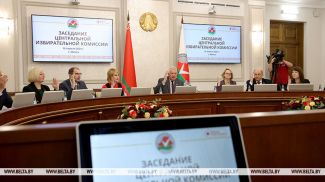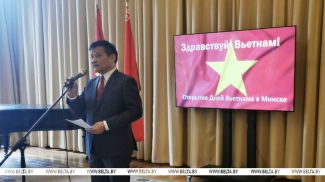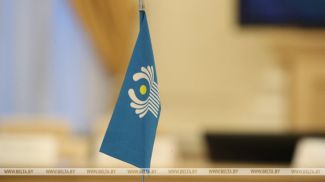BREST, 23 June (BelTA) – The funding provided to Belarus through the Grant Assistance for Grassroots Human Security Projects (GGP) Program implemented by the Japanese government may be increased, Hiroki Tokunaga, Charge d'Affaires ad interim of Japan to Belarus, told the media after his meeting with the chairman of the Brest Oblast Executive Committee on 23 June, BelTA has learned.
“Japan and Belarus share a common tragic experience. We have an idea of what a nuclear disaster is. So we are glad to provide assistance to the people of Belarus. We will certainly continue the GGP program and consider expanding it in the future. Our suggestion to increase the budget for this program is currently considered in Tokyo,” the diplomat said.
Hiroki Tokunaga arrived in Brest to attend ceremonies to present medical equipment to the local healthcare establishments. One of such events was held in Luninets on 22 June to hand over a state-of-the-art ultrasound scan to the central district hospital. On 23 June, the diplomat will visit the Brest Regional Hospital that has purchased a ureterorenofiberscope with a set of tools using a Japanese grant.
Chairman of the Brest Oblast Executive Committee Anatoly Lis thanked the Japanese government for the financial assistance with addressing the impact of the Chernobyl nuclear power plant accident. He noted that thanks to the initiative a number of healthcare institutions have improved their technological infrastructure, which helped raise the level of healthcare in the region. For instance, the central hospital of Pinsk bought a mobile ultrasound scan using a Japanese grant. Another ultrasound scan was purchased for the regional endocrinology clinic.
“Work is underway to upgrade the technological infrastructure of the healthcare sector. Over $10 million was spent in 2016 on the construction and renovation of the healthcare facilities of the region. An additional $3 million was spent to purchase medical equipment,” Anatoly Lis noted. This work enables the local specialists to perform technology-intensive surgeries. In general, the region has recorded a positive natural population increase. Last year, it stood at 1,257 people. The birth rate per 1,000 population was as high as 13.5, the best result in Belarus. Besides, the region reported a drop in the general mortality rate.
Anatoly Lis emphasized that Brest Oblast is working hard to implement joint international healthcare projects. He expressed confidence that the cooperation, including with the Japanese government, will continue.
Belarus has been a participant of the Grant Assistance for Grassroots Human Security Projects Program since 2004. Over the years, the country has implemented 38 projects worth a total of $3.1 million. As many as 207 different units of equipment have been bought for the healthcare establishments in the Belarusian regions.











